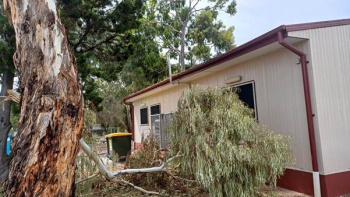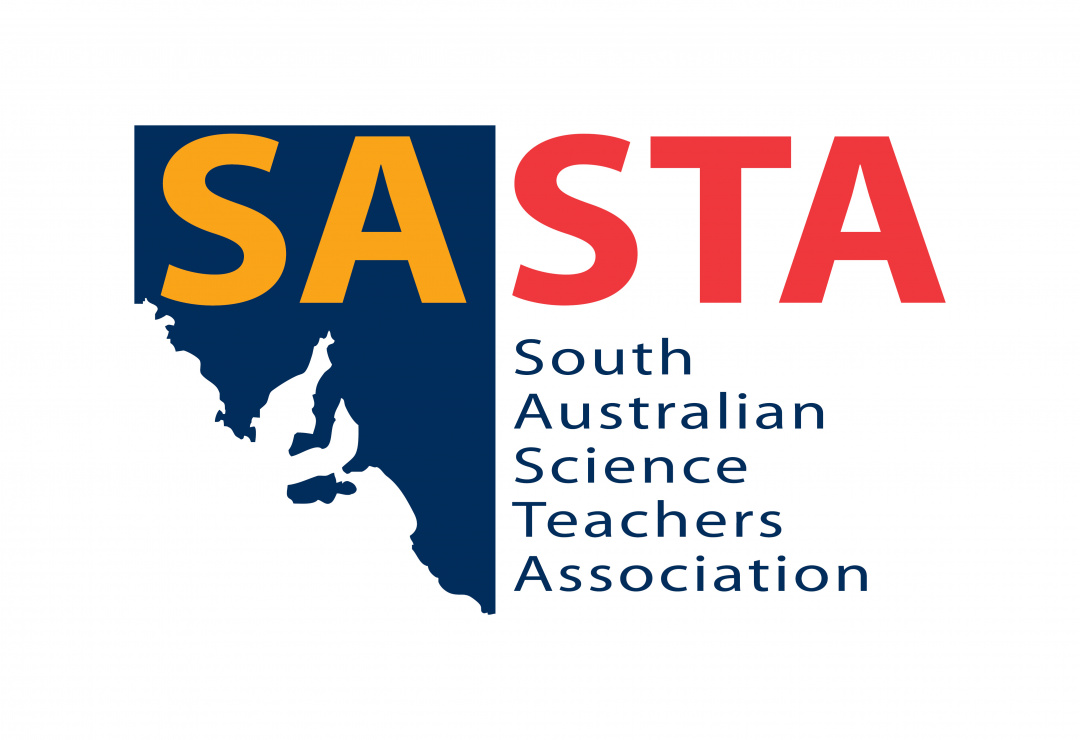Posted by SASTA
on 30/06/2025

Written by Carly Willamowski, Science Teacher at East Marden Primary School
Improving our schools biodiversity was a goal that started with the concerns of our students. As a school that sits along the Karrawirra Parri (River Torrens), East Marden Primary school is surrounded by Gum trees. These trees host a variety of wildlife, provide shade during warm summers and the most beautiful backdrop during cold winter days. They also like to drop their limbs when stressed.
In 2022, three trees deemed unsafe by an arborist were removed from our site, and several students approached teachers expressing concern about where the animals who used these trees as a home would go to live. This simple question sparked curiosity in our students and has led to a wide range of projects that have been undertaken by our students and staff.
Year 2 students in 2023 began the project by looking at what biodiversity was in their science lessons. They learned that biodiversity refers to both the number of living things in a space and the number of different species of living things. From there, students completed a schoolwide audit where we discovered that while our school has a good number of mature trees, we didn’t have very many flowering bushes or plants that live in the undercarriage of those trees. Our learning then shifted into the importance of pollinators, and resulted in students making Bee Hotels, along with a small native garden that was funded with a grant from the AEU’s Sustainability Committee and a Garden Wall that was funded with a donation from Kaz at our local Bunnings Warehouse.

As part of their learning, Year 2 students in 2024 noticed that there had been a decrease in the number of tree hollows that animals could use to nest in. Tree hollows take hundreds of years to produce especially for larger parrots, and this lead to a fantastic unit of work inspired by the book, “A Hollow is a Home” by Abbie Mitchell.
As part of their research project into nesting animals, students asked if they could build nesting boxes for Sulphur Crested cockatoos and Rainbow Lorikeets, birds that already call East Marden home. This led to a grant application from Coles and Planet Ark, which allowed us to combine these two projects. The grant had three goals: improve biodiversity to attract a wider range of living things to our school site, build nesting boxes for birds that had lost their hollows, and allow for us to continue the work through the gardening and sustainability clubs in the school.
Nesting Boxes were chosen from a local company, FauNature, who provided kits for students to build their bird boxes and a wide range of expertise. Once we received the kits, the now Year 3 students and a few Year 6 helpers set about building and painting the bird boxes. This was a fantastic experience, with students being able to gain new construction skills while seeing their learning come to life. While building these boxes, one student commented that “[building the boxes] was the coolest thing I’ve ever done in school”.

Students decorated the birdboxes with designs that reflected the space around them – native plants, birds, and indigenous symbols.
The second part of this project involved planting a wide variety of plants indigenous to the Adelaide Plains region. Students chose the two spaces in our school that they wished to improve and plants were chosen from Provenance Indigenous Plants. Their staff were an amazing resource and provided vital information about the uses of these plants for the Kaurna people, as well as a wide variety of wildlife.

Students from all year levels were involved in monumental day of planting, as well as designing and laying out the vast area in our Nature play space. This process took a whole day and involved over 80 students who helped dig holes, plant seedlings, and erect tree guards to protect the new plants in our site.
Students have also shown their care for the new spaces by spending their break times watering with teachers.
 |
 |
Finally, this project helped us look toward the future, and how we could continue the work of improving our school’s biodiversity. Our Gardening and Sustainability club – R.I.S.E - decided that they wanted to grow and raise seedlings to keep improving areas of the school. Thanks to the Coles x Planet Ark grant, our R.I.S.E group have planted seedlings and begun raising them in the brand-new greenhouse for additional projects throughout our school in the future.
The R.I.S.E team have also begun planning future projects for us, and we cannot wait to see what future learning one simple question will lead us to.

In this Section
Archive
- February 2026
- January 2026
- December 2025
- November 2025
- October 2025
- September 2025
- August 2025
- July 2025
- June 2025
- May 2025
- April 2025
- March 2025
- February 2025
- January 2025
- December 2024
- November 2024
- October 2024
- September 2024
- August 2024
- July 2024
- June 2024
- May 2024
- April 2024
- March 2024
- February 2024
- December 2023
- November 2023
- October 2023
- September 2023
- July 2023
- June 2023
- May 2023
- April 2023
- March 2023
- February 2023
- January 2023
- December 2022
- November 2022
- October 2022
- August 2022
- July 2022
- June 2022
- May 2022
- April 2022
- March 2022
- February 2022
- January 2022
- December 2021
- November 2021
- October 2021
- September 2021
- August 2021
- July 2021
- June 2021
- May 2021
- April 2021
- March 2021
- February 2021
- January 2021
- December 2020
- November 2020
- October 2020
- September 2020
- August 2020
- July 2020
- June 2020
- May 2020
- April 2020
- October 2018
- September 2018
- August 2018
- July 2018

